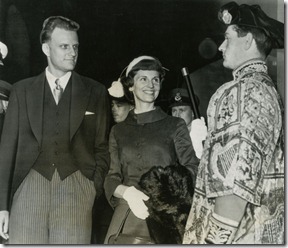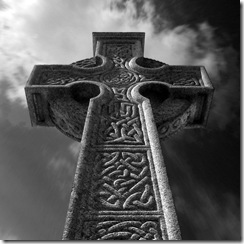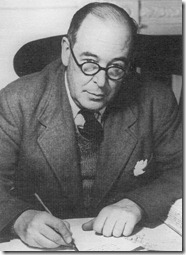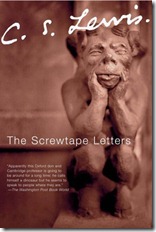 Sherwood Wirt: You wrote 20 years ago that ‘A man who was merely a man and said the sort of things Jesus said would not be a great moral teacher. He would either be a lunatic on a level with the man who says he is a poached egg — or else he would be the Devil of Hell. You must make your choice. Either this man was, and is, the Son of God: or else a madman or something worse. You can shut Him up for a fool, you can spit at Him and kill Him as a demon; or you can fall at His feet and call Him Lord and God. But let us not come with any patronizing nonsense about His being a great human teacher. He has not left that open to us. He did not intend to.’ Would you say your view of this matter has changed since then?
Sherwood Wirt: You wrote 20 years ago that ‘A man who was merely a man and said the sort of things Jesus said would not be a great moral teacher. He would either be a lunatic on a level with the man who says he is a poached egg — or else he would be the Devil of Hell. You must make your choice. Either this man was, and is, the Son of God: or else a madman or something worse. You can shut Him up for a fool, you can spit at Him and kill Him as a demon; or you can fall at His feet and call Him Lord and God. But let us not come with any patronizing nonsense about His being a great human teacher. He has not left that open to us. He did not intend to.’ Would you say your view of this matter has changed since then?
C.S. Lewis: I would say there is no substantial change.
Wirt: Would you say that the aim of Christian writing, including your own writing, is to bring about an encounter of the reader with Jesus Christ?
Lewis: That is not my language, yet it is the purpose I have in view. For example, I have just finished a book on prayer, an imaginary correspondence with someone who raises questions about difficulties in prayer.
Wirt: How can we foster the encounter of people with Jesus Christ?
Lewis: You can’t lay down any pattern for God. There are many different ways of bringing people into His Kingdom, even some ways that I specially dislike! I have therefore learned to be cautious in my judgment.
But we can block it in many ways. As Christians we are tempted to make unnecessary concessions to those outside the Faith. We give in too much. Now, I don’t mean that we should run the risk of making a nuisance of ourselves by witnessing at improper times, but there comes a time when we must show that we disagree. We must show our Christian colours, if we are to be true to Jesus Christ. We cannot remain silent or concede everything away.
There is a character in one of my children’s stories named Aslan, who says, ‘I never tell anyone any story except his own.’ I cannot speak for the way God deals with others; I only know how He deals with me personally. Of course, we are to pray for spiritual awakening, and in various ways we can do something toward it. But we must remember that neither Paul nor Apollos gives the increase. As Charles Williams once said, ‘The altar must often be built in one place so that the fire may come down in another place.’
C.S. Lewis, “Cross-Examination,” God in the Dock (Eerdmans: 1970) 261-263 with appropriate additions from the originally published interview in Decision magazine, September 1963, ©1963 Billy Graham Evangelistic Association.
 But was I the first martyr, who
But was I the first martyr, who












